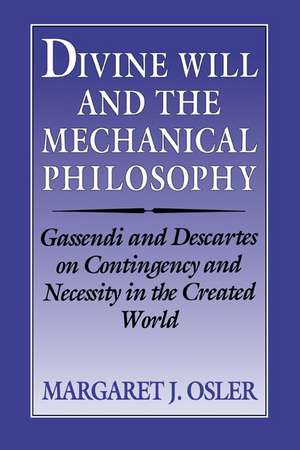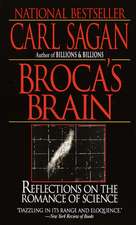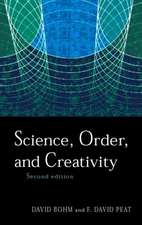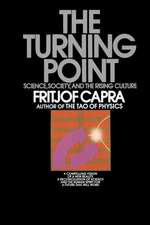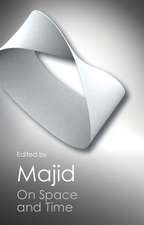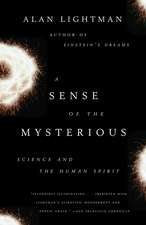Divine Will and the Mechanical Philosophy: Gassendi and Descartes on Contingency and Necessity in the Created World
Autor Margaret J. Osleren Limba Engleză Paperback – 6 iun 2004
| Toate formatele și edițiile | Preț | Express |
|---|---|---|
| Paperback (1) | 331.18 lei 6-8 săpt. | |
| Cambridge University Press – 6 iun 2004 | 331.18 lei 6-8 săpt. | |
| Hardback (1) | 695.06 lei 6-8 săpt. | |
| Cambridge University Press – 23 iun 1994 | 695.06 lei 6-8 săpt. |
Preț: 331.18 lei
Nou
Puncte Express: 497
Preț estimativ în valută:
63.37€ • 66.16$ • 52.45£
63.37€ • 66.16$ • 52.45£
Carte tipărită la comandă
Livrare economică 04-18 aprilie
Preluare comenzi: 021 569.72.76
Specificații
ISBN-13: 9780521524926
ISBN-10: 052152492X
Pagini: 300
Dimensiuni: 152 x 229 x 17 mm
Greutate: 0.44 kg
Ediția:Pbk.
Editura: Cambridge University Press
Colecția Cambridge University Press
Locul publicării:New York, United States
ISBN-10: 052152492X
Pagini: 300
Dimensiuni: 152 x 229 x 17 mm
Greutate: 0.44 kg
Ediția:Pbk.
Editura: Cambridge University Press
Colecția Cambridge University Press
Locul publicării:New York, United States
Cuprins
Part I. Theology and the Philosophy of Nature: 1. Divine power and divine will in the Middle Ages: historical and conceptual background; 2. Baptizing epicurean philosophy: Gassendi on divine will and the philosophy of nature; 3. Providence and human freedom in Christian epicureanism: Gassendi on fate, fortune and divination; 4. Theology, metaphysics, and epistemology: Gassendi's 'Science of Appearances'; 5. Eternal truths and the laws of nature; Part II. The Theological Foundations of Descartes' Philosophy of Nature: 6. Gassendi and Descartes in conflict; 7. Introduction: theories of matter and their epistemological connections; 8. Gassendi's atomism, an 'empirical' theory of matter; 9. Mathematizing nature: Descartes' geometrical theory of matter; 10. Conclusion: theology transformed and the emergence of styles of science.
Recenzii
"Her book cannot fail to leave an enduring mark on our understanding of the Scientific Revolution....a major contribution to the growing but still small literature on Gassendi; she absolutely rejects the interpretation of Gassendi as covert materialist. The book includes as well excellent brief expositions of two different mechanical philosophies, which will in themselves be of interest to historians of seventeenth century science....It will be evident from the review above that I find Osler's argument convincing. Her book brings an unexpected perspective to bear on the Scientific Revolution, such that every student of seventeenth century science will need to consider it. Even those who may disagree with Osler's thesis will find, I believe, that they cannot ignore it." Richard Westfall, The Philosophical Review
"Osler's book is a major contribution to the growing but still small literature on Gassendi....Her book brings an unexpected perspective to bear on the Scientific Revolution, such that every student of seventeenth century science will need to consider it. Even those who may disagree with Osler's thesis will find, I believe, that they cannot ignore it." The Philosophical Review
"This is a wonderful book, the culmination of twenty years of patient and painstaking scholarship." International Philosophical Quarterly
"Osler's book is a major contribution to the growing but still small literature on Gassendi....Her book brings an unexpected perspective to bear on the Scientific Revolution, such that every student of seventeenth century science will need to consider it. Even those who may disagree with Osler's thesis will find, I believe, that they cannot ignore it." The Philosophical Review
"This is a wonderful book, the culmination of twenty years of patient and painstaking scholarship." International Philosophical Quarterly
Descriere
This book is about the influence of theological presuppositions on two versions of the mechanical philosophy in the seventeenth century.
